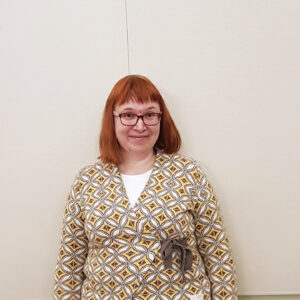With ZAU science clubs, we increased girls’ interest towards mathematics, natural sciences and technology. At the same time, science club instructors were able to try phenomenon-based and Inquiry-based teaching. For example, many primary school teachers were inspired to organize accessible science clubs for their pupils.
Learning experiences for both children and instructors
In 2019 –2021, a total of 55 clubs and 3 virtual clubs were organised, bringing together more than 1,000 children from all over Finland. At the same time, 91 club instructors gained valuable experience in phenomenon-based and inquiry-based teaching. Professor Maija Aksela, Director of the LUMA Centre Finland, is pleased with the results of the ZAU-project.
– With science club activities, we popularized science and technology for the children, young people and families involved. I am also pleased that the training of club instructors enabled us to support the continuous learning of teachers and teacher training. As a network, we gained a lot of valuable experience of science club activities and many good learning materials to share with everyone. Warm thanks to the Zonta International -organization for making this possible and all those who have organised science clubs.
Science was introduced through everyday phenomena
Primary school teacher Mari Huttunen from Kotka organized two ZAU science clubs at her school: the first one in autumn 2019 and again in autumn 2021. The theme of the clubs was selected based on its familiarity to be food and reactions, which was then expanded  according to the pupils’ interests. In science clubs, pupils familiarised themselves with the reactions of everyday life, such as the reacting of baking powder and the foaming of egg protein. In addition, children made ice cream in a plastic bag, play dough and plastic from milk.
according to the pupils’ interests. In science clubs, pupils familiarised themselves with the reactions of everyday life, such as the reacting of baking powder and the foaming of egg protein. In addition, children made ice cream in a plastic bag, play dough and plastic from milk.
According to Huttunen, clubs were successful from the viewpoint of both participants and teachers.
– Both of our clubs were very popular: there were about 20 participants on both occasions and even more would have wanted to participate. The clubs were organised at the school premise after the school day, and they were free of charge to make them as accessible as possible. Children have been extremely motivated to experiment themselves, and their joy has also spread to us instructors. Instructing science clubs has not felt like work at all, she says.
Confidence in personal skills was increased
In particular, Huttunen praises the project for all the support which made it easy to organise clubs on her own. During the project, she was able to cooperate with a colleague as an equal team. Although the pupils had time to experiment with a variety of activities, several were still left for the prospective future clubs.
– Without the ZAU-project, I would never have organized a science club, because I would not have felt that I was competent enough to do so. However, during the clubs, those doubts were proven wrong. I wish the children who took part in my clubs would never have to doubt their own expertise, Huttunen sums up.
About the project
The aim of the ZAU-project was to inspire especially girls towards studying mathematics, natural sciences and technology and having these subjects as a hobby. To reach this goal, phenomenon-based and accessible science clubs were organized all over Finland. Club activities were specifically planned based on girls’ interests and emphasized the importance of hands-on activities. Those interested in instructing clubs were trained for their task in an online course. The project was carried out in cooperation with the Zonta International District 20 and the LUMA Centre Finland. To finance the project, Zonta International organised a fundraising with a total revenue of approximately EUR 150,000.
Read more
• Learn more about the project and its results from the final report


